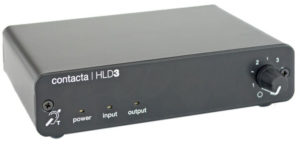by Neil Bauman, Ph.D.
A lady explained,
I was led to think that higher-end hearing aids were more powerful than lower end aids. I need power aids as I have a profound loss in both ears. What features are important? Is Bluetooth a must? How about t-coils? Can I have both in one waterproof aid…at a reasonable price?
Manufacturers typically make their lines of hearing aids in three tiers—expensive, more expensive and ridiculously expensive. The difference is not in the power of the aids, but in the features—the bells and whistles.
Good audiologists and hearing aid dispensers (good is defined as those that really try to help their clients, not line their own pockets) start at the bottom and see whether the most inexpensive line has the features the client needs. If so, that is what they get. If they need/want more features then they go to the second tier, and so on.
Unfortunately, many audiologists and dispensers start at the top and only tell you about the existence of the top tier (read more money in their pockets). They may justify it to themselves that now the client has all the features they could possibly want—but why pay for features you are never going to use?
Incidentally, there is no such thing as Bluetooth in a hearing aid. The Bluetooth component is always in the accompanying remote device. So if you don’t want to lug around a remote (and lose if you are prone to that), then you can’t have bluetooth.
Bluetooth is a cool feature if you have a bluetooth cell phone (and it works properly). You can answer your phone from your remote and hear in both ears. It makes for hands-free cell phone use via your hearing aids since the remote typically hangs around your neck.
T-coils should be mandatory as far as I’m concerned. And note this, it does not cost you even one cent extra to buy an aid with a t-coil in it—so why don’t all hearing aids sold have t-coils? The answer is greed. If you don’t have t-coils so you can use the inexpensive ALDs, you have to buy the manufacturer’s proprietary (read very high-priced) RF equivalent that only works with that aid.
There is nothing wrong with having a hearing aid that has a proprietary RF system if you want it, but don’t do that at the expense of leaving out the t-coil (you can have both) or you will find yourself blind sided when you go to a looped venue and find your ridiculously expensive RF system won’t work there, while everyone that has t-coils (that didn’t cost them a cent extra) are hearing beautiful clear sound through their aids.
Personally, I love hearing aids with automatic volume controls—if they work so smoothly that you can’t even tell they are working—but, I insist on having a manual override. When you have this, you set the volume to the average level you want and the automatic feature basically holds the volume to that level. If you want more volume, you turn it up and now the average level is higher and the automatic feature holds it there.
As for having waterproof hearing aids at a reasonable price, that remains to be seen. Few hearing aids are totally waterproof yet. The Siemens Aquaris Micon was the first one. The good news is that it is bluetooth compatible. Bluetooth is built into the remote. So is a t-coil. Thus you can have both of these features in a waterproof aid. In order to use this underwater, you’ll also have to get the Aquapac (a waterproof bag) so you can keep your remote with you when you are swimming, etc. Prices range for this aid from around $1,300.00 to more than $2,500.00 depending on the features you want. For example, more channels cost more money. Unfortunately, for you, the Aquaris is rated for mild to severe losses. Thus you may find it is not powerful enough for you. However, it doesn’t hurt to check it out and see whether it has enough power for you or not.



Leave a Reply